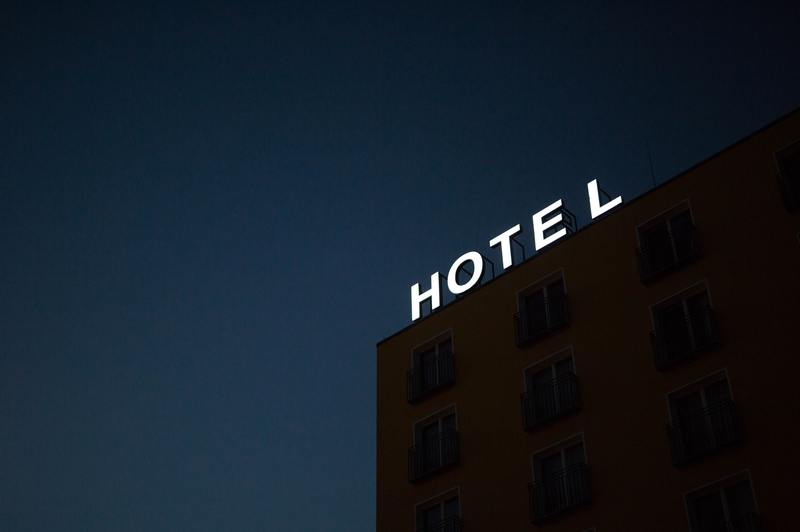Are you curious about how is pest control in hotel done? Pest control in a hotel can be done through Integrated Pest Management (IPM).
This pest control method integrates many proactive measures to eliminate pests, starting with non-chemical practices like sanitation and maintenance protocols.

If we eliminate the pests’ access to food, water, and shelter, an IPM plan can significantly control pests’ populations, leading to a safer environment for hotel guests and staff. IPM monitors and eliminates pests safely since chemical pesticides are not necessary.
IPM only treats chemical pesticides as a last resort. It emphasizes pest control practices that focus on preventative measures; with minimal use of toxic chemicals, it is safer for the environment.
Components Of IPM
Too much use of chemical pesticides may lead to issues like pesticide resistance and environmental contamination. Shown below are four high-level components of IPM.
1. Set action thresholds
Setting action thresholds is when the pest control contractor coordinates with the customer on identifying whether the pest population has exceeded a certain threshold which is a point at which the hotel should consider an immediate pest control action.
2. Identifying and monitoring pests
Since IPM relies on sustainable practices that target specific pests, it’s necessary to identify the cause of an emerging problem through proper inspections and monitoring devices. Monitoring pests lets you know when pests are more active and determine whether a pest population is growing.
3. Pest prevention
Pest prevention includes eliminating the pests’ access to water, food, and shelter. Such methods can mitigate the danger of any pest problems that may arise.
4. Pest control methods
IPM focuses on non-chemical methods like sanitation and facility maintenance to get rid of pests proactively. It relies on synchronizing various pest control practices, including physical and mechanical techniques.
Physical methods involve adjusting temperature and humidity, while mechanical methods employ insect light traps, cobweb brushes, and vacuum cleaners.
5. Evaluation
Pest management must identify which methods worked and which ones didn’t. Make sure to keep a record of the following methods for future reference.
Common Pests That Hotel Guests Encounter
Coming across pests in a hotel can ruin a guest’s stay and often lead to negative comments on social media, damaging the hotel’s reputation. Pests can enter hotels of any class, so it is a must for every hotel to practice pest control methods like IPM to control the pest population.
Bed bugs
Preventing bed bugs is complicated because they are usually brought to the hotel premises by the guests themselves, and even the luxurious hotels may suffer from infestation. Bed bugs are blood-sucking pests that are excellent hitchhikers because they cling to anything that brings them closer to the spot where you rest.
No guest would love to return from a hotel with infuriating bites that can last for days. An experience like this would most likely lead to a complaint on social media.
The key to preventing bed bugs is identifying the problem as early as possible. Prevention of these pests requires an integrated approach to eliminate them.
Cockroaches
Cockroaches infest restaurants, kitchens, and public washrooms. They are mainly nocturnal, preferring to stay in a shelter during the daytime and search for food at night.
They take shelter in little dark places in furniture, cracks, food packages, crevices in a building structure, and hidden spots along drain pipes and sewers. Cockroaches, in general, like warm and humid places, but some cockroaches have different habitat preferences.
Cockroaches are a health risk because of their feeding habits on contaminated matter like rotting food, mold, fecal matter in sewers, and animal carcasses. They also carry pathogenic microorganisms like Staphylococcus, Listeria, E. coli, and parasitic worms.
Proper cleaning practices in food storage and preparation areas help in preventing cockroaches. In addition to that, always ensure that the drainage system is in good condition.
Are you planning to avail a pest control service for roaches? Check out this article to identify how much is pest control for roaches.
Flies
Flies are primarily attracted to food products and food waste. They like food odors from kitchens and food preparation areas.
Common species of flies found in hotels are house fly and fruit fly. To prevent flies from multiplying, always clean food preparation areas.
Rodents
Rats and mice are allured to food supplies in kitchens, restaurants, and waste storage areas. Rodents’ population may increase if there are poor practices in food handling.
Rodents contaminate food and surfaces, and they can spread a range of bacterias such as Salmonella and E. coli. They can also cause extensive damage to appliances and even wiring.
You can prevent rodents by eliminating their access to water, food, and shelter. Proper practices in food delivery, preparation, storage, and disposal areas may help get rid of rodents.
Conclusion
Are you wondering how is pest control in hotel done? Pest control in a hotel can be done through Integrated Pest Management (IPM).
It is a pest control method that integrates multiple pest control measures like physical and mechanical methods and biological control. Pests are unlikely to survive a program that utilizes various ways of reducing their populations.
Hotel guests encounter common pests, including bed bugs, cockroaches, flies, and rodents. It is essential to practice the right way to sanitation and food preparation to prevent the entry of these hazardous pests.
Do you want to gain more information about pest control? You can check out this article that explains what is included in pest control.
